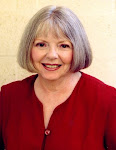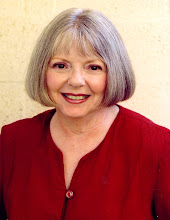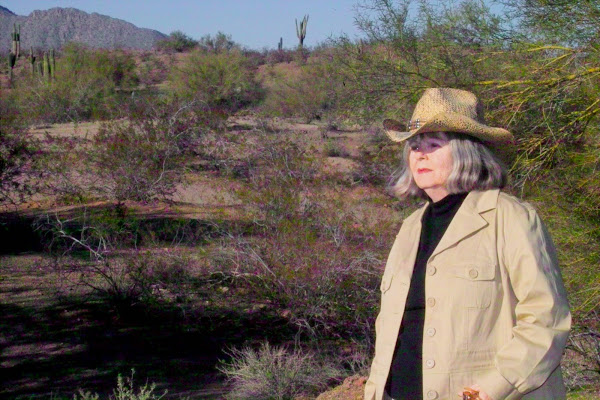J. M. (Mike) Hayes is the author of the popular Mad Dog and Englishman mysteries. We recently sat down to chat about his books and the writing life.
BETTY: Tell me a little about your new book. I hear it's another “Englishman” mystery.
MIKE HAYES: Sheriff English and his oddball, born-again Cheyenne brother are back for the fourth Mad Dog & Englishman mystery. Think Joel and Ethan Coen working with Garrison Keeler to make The Silence of the Lambs and you'll have the tone of the series. It's set in an imaginary Kansas county where English has been getting re-elected by small margins for years. Sheriff English is also known as Englishman. His half-brother, Harvey Edward Maddox, starred on the local football team where he earned the Mad Dog nickname. Since the glory days of his youth, Mad Dog has evolved into the local oddball—hippie, black power advocate, leader of the grape boycott, and now, a born-again Cheyenne. The boys' mother claimed to be half Cheyenne and half wildcat, though her Indian portion turned out to include Sans Arc, Mexican Cowboy, and Buffalo Soldier portions, as well as Cheyenne. After deciding he was a natural-born shaman, Mad Dog officially changed his name, and stuck the sheriff with his nickname. Once you've got a Mad Dog you've got to have an Englishman.
BETTY: Sounds like fun, and more than a little weird. How’d you come up with the idea for the series?
MIKE: I came up with the idea for Mad Dog & Englishman after the peaceful village where my father was born, Arlington, Kansas, went through the trauma of its first murder. My imaginary Buffalo Springs, Kansas is considerably less idyllic, but I thought it was interesting to consider how a community, in which things like murder never happen, reacts when one does, and how an under-funded and ill-prepared law enforcement agency goes about investigating such a horrific crime. For my own purposes, I thought it would be even more interesting if the sheriff's brother was the most logical suspect, and also happened to be determined to solve the case himself, though using Cheyenne Shamanism instead of police procedures. Then, to keep things moving, I decided to confine the book to one frantic twenty-four hour period. I wasn't expecting to write a sequel, as you'll discover in Prairie Gothic, Plains Crazy, and now Broken Heartland, when you watch me juggle a pair of characters who inconveniently share a name, but I've stuck with the formula in each of those books. Nothing ever happens in Buffalo Springs, but when it does, expect a Murphy's Law squared kind of day. With this addition to the series, that's four days, one each in summer, winter, spring, and fall, when all hell has broken loose in Benteen County, Kansas, and Sheriff English—an honest cop without much help or modern investigative equipment—sets out to find the villain and save the town while his brother, Mad Dog, gets in the way, draws suspicion, and otherwise
complicates the sheriff's efforts to bring the guilty to justice.
BETTY: I love that kind of competition, and you do it so well. For readers who are unfamiliar with the new book, what’s the plot of Broken Heartland?
MIKE: In this book, it's fall—Election Day—and Sheriff English is facing a particularly difficult opponent. His campaign is complicated by an accident during a high-speed chase in which his deputy collides with a school bus carrying the local teen choir. Mad Dog, who was in the Black Hills on a vision quest, has had a premonition instead. His brother is in immediate danger. The sheriff's college-age daughters, at separate schools, awaken with a similar sense of dread and, like their uncle, hurry home to protect Englishman. The sheriff, of course, sees his family as the ones in need of protection, especially when someone begins shooting up the local high school and a private army seizes control of a nearby farm and starts taking hostages. In other words, it's business as usual—another Murphy's Law day.
BETTY: I know writers hate to be asked this question, but where did you get the idea for Broken Heartland? Inquiring minds want to know.
MKE: The 2004 election was one of the most polarizing in our nation's history. Shortly before the election, Thomas Frank wrote a best-selling book titled What's the Matter With Kansas? My third Mad Dog & Englishman book, Plains Crazy, had just been released and my wife and I went back to the Great Manhattan Mystery Conclave in The Little Apple, Manhattan, Kansas to promote it that fall. It was an interesting opportunity to compare the book's observations with the Kansas I remembered from having grown up there, as well as the one we were visiting. We went to another GMMC just before the 2006 election. I felt sure I was seeing more of the heartland I knew than the one in Frank's book. In fact, some dramatic changes came about in that election. I decided to combine the political threat Frank described from the religious right with Englishman's re-election campaign. The result became Broken Heartland.
BETTY: That brings up an interesting point. Just what is it about the Religious Right that sets so many people's teeth on edge?
MIKE: Among other things, our religious right bears a striking similarity to the fanatics who attacked us on 9/11. They are as certain that their world view is the only correct one as al-Qaeda is about theirs. And, in some cases, as willing to do desperate and despicable things. The men who attacked the federal building in Oklahoma City did so because they believed the United States had to be punished for what happened at the Branch Davidian Compound in Waco. Another "Christian" sect in Kansas sends protesters to the funerals of soldiers killed in Iraq and Afghanistan, claiming those men died because God hates America for not wiping homosexuals off the face of the earth. People like these, who operate completely outside the realm of logic and reason, are frightening. We're never quite sure what they're capable of. The fact that some "Christian" fanatics have killed because of their beliefs convinces other people that every Evangelical Christian is similarly dangerous. Like all generalizations, that's too simplistic and inaccurate. The next thing you know, people will start thinking their local Cheyenne Shaman is capable of murder . . . No, wait. They do that in Benteen County all the time.
BETTY: A chilling, chilling plot that resonates with newspaper headlines today. So what's next for the Englishman? How do you top something like Broken Heartland?
MIKE: I'm working on a book that will let me split time between (home) the Kansas I grew up in, and (home) the Southwestern desert I've lived in since I transferred from Wichita State University to the University of Arizona. Englishman's daughters have grown up over the years I've been writing this series. One of them has inherited her father's interest in law enforcement and, though she doesn't know it yet, may be about to get an opportunity to work in Southern Arizona. Unless that story throws a twist at me I'm not expecting, I'll then be able to write mysteries in either location, or both, depending on my inclination. And since I live in Arizona, it makes sense to write books about the place where I can
most easily promote them.
BETTY: A lot of novice writers visit this site. What is the best advice you can give them?
MIKE: More than one would-be writer has asked me what the secret is to getting published. The only one I know is to already be famous, or infamous, and therefore, someone a publisher believes will tomatically sell enough books to make a profit. Since most of us don't bring fame to the table—and the infamy option, though always open, remains a place we'd prefer not to go—we're stuck with hard work. There are natural writers who sell their first article, story, or book, and everything they write thereafter, but they're the exception. Most of us have to master the trade and we can only do that by reading, evaluating what we read, and practicing and perfecting our craft. That takes patience. My first sale came after six years of rejection slips. But, by the time I was ready to submit my first novel, it was picked up by the first agent I approached and bought by the first publisher to whom she submitted it. Then that publisher dropped their line of suspense novels and, because my parents were thoughtless enough not to set me up with a generous trust fund, I was another ten years finding the time to reinvent myself and write the next novel that would sell.
If you want practical advice, I'll lead with patience. Next, you must read. How-to-write books can be a great help, but if you want to sell a mystery, read mysteries. You have to know what's being published and make an effort to understand why. Writing classes can be of assistance, as can writers groups that aim to advise and assist their members (e.g., the Society of Southwestern Authors). Somewhere along the way, you have to learn the rules. Then, you must not allow yourself to be constrained by them. Ultimately, the first rule of good writing is that there are no rules (except that what is written must work for the reader). And while it may be harder to sell something that's odd and not quite like anything else on the shelves, those are the books readers remember and remark on and eventually turn into classics.
Find a critique group—other writers and would-be writers who are willing to exchange honest opinions and evaluations of each other's work. And don't waste your time on members seriously below your skill level. Critique groups take lots of your time, but they can provide invaluable and near immediate feedback. To be useful, a critique group must gain you as much as you give it.
Resist the urge to self-publish. As with all writing rules, this doesn't apply to everyone. But, especially in fiction, self-publishing is more likely to harm a writer's career than aid it. Many legitimate publishers now reject the self-published out of hand because they believe those writers lack the patience to endure the editorial process and may resist necessary revisions. This may seem unfair, and there are certainly bad books published by respected houses, but putting the average book through a vetting process makes a real difference and few individuals are able to market their work, no matter how good, as effectively as even the least of the small publishing houses.
That's it. That, and write the very best you can. When you show your work to others, do so only after you've revised and proofed and made it the absolute best it can be. And then, if you're rejected, keep trying. You only have to find one publisher who appreciates your work. It's a tough road, harder still under current conditions, but I firmly believe quality writing still gets recognized and finds its way into print. Give it your best shot, as many times as it takes.
For more on J. M. (Mike) Hayes and his books, visit http://www.jmhayes-author.com.
Wednesday, November 28, 2007
Subscribe to:
Post Comments (Atom)










No comments:
Post a Comment